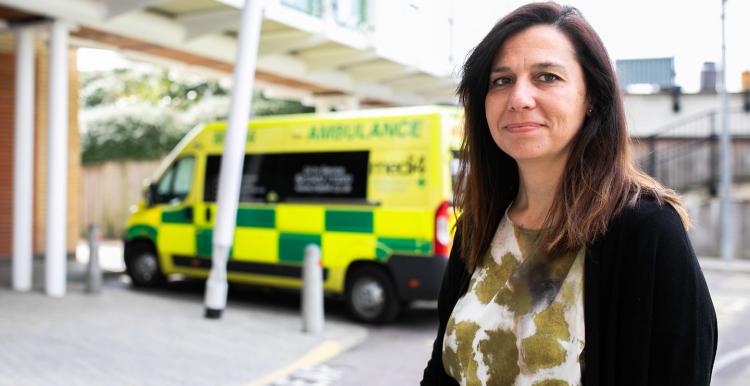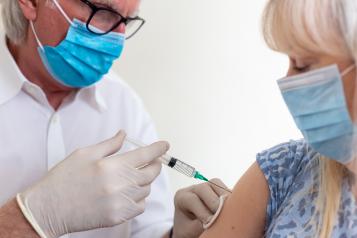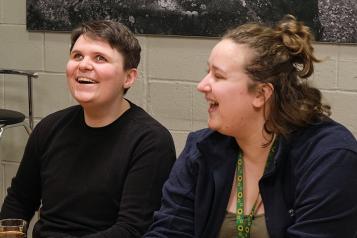Long Covid Case studies: Claire's Story

My experience of trying to get support for my Long Covid recovery has been truly exhausting as I've been passed around like a parcel. I have been able to advocate for myself, with difficulty, but I can only imagine how much harder it must be for patients who struggle with English or are less confident to navigate the system.
Claire's Story
We heard from over 300 people in North Central London with Long Covid. Claire lives just over the border in Hackney but her GP is based in Islington. Her name has been changed for anonymity.
Claire was diagnosed with Long Covid after an antibody test given by her GP in August 2020, about six months after she began experiencing symptoms including fatigue and breathlessness. When we spoke to her, she had been dealing with the effects of Covid for 19 months. At one point during this period it seemed like her condition was improving, only for it to worsen again.
Claire works in local government. She has been off work sick for a year and was about to lose her job. She is a carer for her mother who lives in Islington. The family has had to make other caring arrangements over the past year because of Claire’s Long Covid.
The key criticism Claire has of her experience of treatment is that she has often found herself ‘bouncing backwards’, being rejected by services because of her address. Her long-awaited referral to occupational therapy services at the Whittington has only gone through because the UCLH Long Covid Clinic pushed back against the initial decision to reject it.
'Passed around like a parcel'
Claire’s experience has revealed inconsistencies between how eligibility criteria are applied in Islington and Hackney. She is ineligible for Long Covid services in Hackney because she is registered with an Islington GP, and rejected by services in Islington because she has a Hackney postcode. It is not clear whether this is due to mistakes made by individual staff members in interpreting eligibility criteria or whether it is a problem with how services have been designed.
"I live in Hackney (on the border) but my GP is in Islington and most of my healthcare takes place in Islington. I am under the care of the UCLH Post Covid clinic and have been accepted on the waiting list for Post Covid Community Rehab in Islington and also currently see a physio from the Whittington. This has only been achieved recently after a battle I had to fight myself whilst struggling with a wide range of disabling Long Covid symptoms.
I have spent most of the 19 months that I have had Covid/ Long Covid being bounced between Hackney and Islington with the delays in treatment having a very negative impact on my recovery. I know that this is happening to other patients and wonder if this is something that is being raised by Healthwatch?
As someone who has worked for the local authority in the delivery of services for many years, I do understand that commissioning budgets et cetera lead to boundaries needing to be in place but I can honestly say that my experience of trying to get support for my Long Covid recovery has been truly exhausting as I've been passed around like a parcel. I have been able to advocate for myself, with difficulty, but I can only imagine how much harder it must be for patients who struggle with English or are less confident to navigate the system."
Experiences of Care
Claire has had regular appointments/contact with her GP every 3 to 4 weeks. These have been very good, and "the main reason I’ve kept my GP". If it weren't for this Claire felt it might have been easier to reregister with a GP based in Hackney in order to access the Hackney Long Covid treatment pathway.
When invited to rate her GP’s knowledge/understanding of Long Covid, Claire described this as moderate. She qualified this by saying "she’s been very open with me" and acknowledging that GPs have been learning as they go.
Her experience of accessing mental health services was frustrating. Though describing herself as not having a high level of need, having Long Covid had over time affected her mental well-being and she was referred to iCOPE. However, that referral was also rejected because she lived in Hackney and it was only due to the persistence of her physiotherapist pushing back against the decision that she was able to access the service. [She was already seeing the physiotherapist before Long Covid for an unrelated issue].
Unnecessary delays due to lack of communication with patients
“I kept thinking the referral had been made but it had been rejected and nobody had told me. I got my referral three months later thanks to a stubborn physio doggedly fighting for me.”
Claire noted that, in her experience, referral decisions were often made very quickly. In a matter of days, a service would make the decision that she was ineligible and reject her referral. However, these decisions were not passed on to her. In the case of her iCOPE referral, for example, she was not made aware that her referral had been rejected until three months later when her physiotherapist chased it up on her behalf. The decision was overturned but three months were wasted and access to the service was delayed unnecessarily. Perhaps services could be more proactive in their communications, letting patients know when a referral has been rejected so they can take action as soon as possible. Claire felt that it would be important that any such communications to Long Covid patients were framed positively.
What has helped?
When asked which services and interventions she had found most useful she named her GP, who "believed me and tried to help" and the ENO breathing programme, which "gave me a sense of gaining control." This is important because much of the emphasis in Long Covid recovery is about avoiding overdoing it, whereas the ENO programme is a positive action that patients can take.
Claire had been able to access an occupational therapist in Hackney for a while earlier in her treatment and found this intervention very helpful but the therapist was only able to do a short amount of work with her.
Health Inequalities
Claire reflected that it can be ingrained in us not to feel critical, but overall she said she was dissatisfied with her experience of Long Covid services.
She was concerned for people in a similar situation to herself but with less capacity to self-advocate. "What if you can’t fire off emails?" If English isn’t your first language or you face other health inequalities? Claire feels that she has accessed support despite, rather than because of, the systems that have been put in place. She was concerned that access was unfair. Her GP in Islington is a large one and about 20% of the patients there are Hackney residents, so her experience of these barriers to access won’t be unique.
Long Covid in North Central London
Healthwatch Islington worked in partnership with the other North Central London Healthwatch to gather local people's experiences of Long Covid. Our aims were to identify any gaps in current provision and support the better development of services and systems that help local people to manage their symptoms.
Long Covid usually presents with clusters of symptoms, often overlapping, which can fluctuate and change over time and can affect any system in the body. Recovery time varies for each patient but management and recovery are possible with the right support. Patients have had wide-ranging experiences when trying to access help from the healthcare system for Long Covid.


